
The Society for Psychical Research (SPR) is a nonprofit organisation in the United Kingdom. Its stated purpose is to understand events and abilities commonly described as psychic or paranormal. It describes itself as the "first society to conduct organised scholarly research into human experiences that challenge contemporary scientific models." It does not, however, since its inception in 1882, hold any corporate opinions: SPR members assert a variety of beliefs with regard to the nature of the phenomena studied.

Sir William Osler, 1st Baronet, was a Canadian physician and one of the four founding professors of Johns Hopkins Hospital. Osler created the first residency program for specialty training of physicians, and he was the first to bring medical students out of the lecture hall for bedside clinical training. He has frequently been described as the Father of Modern Medicine and one of the "greatest diagnosticians ever to wield a stethoscope". Osler was a person of many interests, who in addition to being a physician, was a bibliophile, historian, author, and renowned practical joker. One of his achievements was the founding of the History of Medicine Society of the Royal Society of Medicine, London.
The Ethnological Society of London (ESL) was a learned society founded in 1843 as an offshoot of the Aborigines' Protection Society (APS). The meaning of ethnology as a discipline was not then fixed: approaches and attitudes to it changed over its lifetime, with the rise of a more scientific approach to human diversity. Over three decades the ESL had a chequered existence, with periods of low activity and a major schism contributing to a patchy continuity of its meetings and publications. It provided a forum for discussion of what would now be classed as pioneering scientific anthropology from the changing perspectives of the period, though also with wider geographical, archaeological and linguistic interests.

The Royal Asiatic Society of Great Britain and Ireland, commonly known as the Royal Asiatic Society (RAS), was established, according to its royal charter of 11 August 1824, to further "the investigation of subjects connected with and for the encouragement of science, literature and the arts in relation to Asia." From its incorporation the society has been a forum, through lectures, its journal, and other publications, for scholarship relating to Asian culture and society of the highest level. It is the United Kingdom's senior learned society in the field of Asian studies. Fellows of the society are elected regularly. Fellows include highly accomplished and notable scholars of Asian studies. They use the post-nominal letters FRAS.

Margaret Charlton was a pioneering Canadian medical librarian who was instrumental in founding the Association of Medical Librarians, which became the Medical Library Association in 1907. She was the association's first secretary.

The Hakluyt Society is a text publication society, founded in 1846 and based in London, England, which publishes scholarly editions of primary records of historic voyages, travels and other geographical material. In addition to its publishing role, the Society organises and participates in meetings, symposia and conferences relating to the history of geographical exploration and cultural encounter. It is a registered charity and a non-profitmaking institution administered by a voluntary team of council members and officers. Membership is open to all with an interest in its aims.
John Kells Ingram was an Irish economist and poet who started his career as a mathematician. He has been co-credited, along with John William Stubbs, with introducing the geometric concept of inversion in a circle.

Sir William Turner was an English anatomist and was the Principal of the University of Edinburgh from 1903 to 1916.
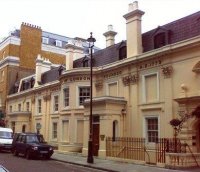
The Fellowship of Postgraduate Medicine (FPM) is a British non-profit organisation that was founded after World War I and pioneered the development of postgraduate educational programmes in all branches of medicine. It was founded in late 1918 as the Inter-allied Fellowship of Medicine with Sir William Osler as its President. In the autumn of 1919, Osler merged the IAFM with the Postgraduate Medical Association of which he had been the founding President since 1911. In October 1919, Osler was appointed President of the combined Fellowship of Medicine and the Postgraduate Medical Association and Sir William Osler became the first president of the new organisation. The fellowship is supported by national and international fellows with expertise in the practice of medicine, medical education, clinical research, and related disciplines. The office and meeting rooms of the fellowship are in Central London. It is governed by a council that meets quarterly.

The Cambrian Archaeological Association was founded in 1846 to examine, preserve and illustrate the ancient monuments and remains of the history, language, manners, customs, arts and industries of Wales and the Welsh Marches and to educate the public in such matters. The association's activities include sponsoring lectures, field visits, and study tours; as well as publishing its journal, Archaeologia Cambrensis, and monographs. It also provides grants to support research and publications.
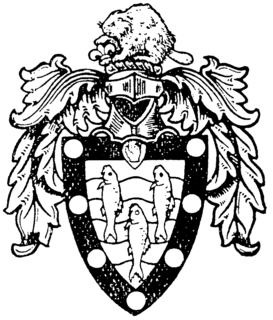
The Osler Club of London is a society founded in 1928 to encourage the study of the history of medicine, particularly amongst medical students, and to keep "green the memory of Sir William Osler". Membership in the club is open to medical men and women, medical students, and persons associated with the history of medicine and in allied sciences.

Dorothea Waley Singer, b. Cohen (1882–1964) was a British palaeographer, historian of science, medical historian and philanthropist.
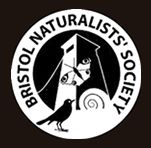
The Bristol Naturalists' Society is an organisation whose objectives include the promotion of the study of natural history, particularly that of the Bristol area, and the conservation of the fauna, flora, and geological sites of Britain. It was founded in 1862 and celebrated its 150th anniversary in 2012.
William Collins Engledue, MD, MRCS, MRCS, LSA (1835) was an English physician, surgeon, apothecary, mesmerist, phrenologist — and, in concert with John Elliotson, M.D., the co-editor of The Zoist.
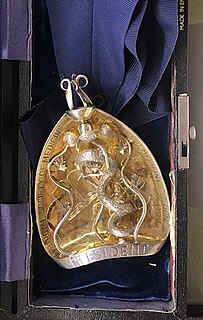
Founded by Sir William Osler in 1912, the History of Medicine Society, at the Royal Society of Medicine (RSM), London, is one of the oldest History of Medicine societies in the world and is one of the four founder committees of the British Society for the History of Medicine.

Sir Raymond Henry Payne Crawfurd FRCP was a British physician and writer who, in addition to being active in post graduate medical education, took up numerous clinical and administrative responsibilities, including Registrar and examiner to the Royal College of Physicians (RCP), the Dean of Kings College Hospital Medical School, now King's College London GKT School of Medical Education (GKT), and Chair of Epsom College Council.
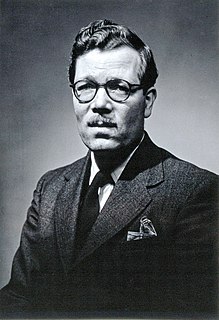
Frederick Noël Lawrence Poynter was a British librarian and medical historian who served as director of the Wellcome Institute for the History of Medicine from 1964 to 1973.

The American Osler Society is an organisation dedicated to the history of medicine and focuses on the "life, teachings, and ethical example of Sir William Osler". It works in co-operation with the Osler Library of the History of Medicine at McGill University and consists of a group of physicians, medical historians, and other related professions united by "the common purpose of keeping alive the memory of Sir William Osler"

Charles Stone Bryan is an American retired infectious disease physician, researcher, author and Heyward Gibbes distinguished professor emeritus of internal medicine at the University of South Carolina School of Medicine (UofSC). His contributions to medicine have included working on a formula for administering the maximum possible dose of penicillin to people with kidney failure which would treat the infection and avoid penicillin toxicity, and treating and writing on HIV/AIDS. He is also a noted medical historian and an authority on the life of William Osler.
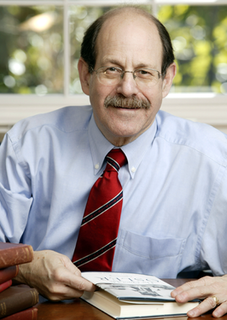
Mark Edwin Silverman MD MACP FACC, was an American cardiologist, medical historian, medical educator and author of more than 200 medical articles and a number of books, who founded the cardiology programme at Piedmont Hospital in Atlanta, Georgia.